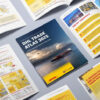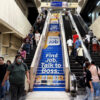Here’s a multiple-choice question for you. Are you:
A. Creating a resume for the first time?
B. Creating a new resume?
C. Updating your resume?
If you answered yes to any of the above options, you’ve come to the right place. There is a lot of advice out there on how to write a good resume. Sometimes, one bit of advice contradicts another. What resume tips should you follow?
We’re here to supply you with the most accurate and up-to-date resume writing tips. Hello, will consider why you should write your own resume, create a different resume for each job application, keep your resume short, and always proofread your final product.
Tip No. 1: Write Your Own Resume
Some job search websites recommend hiring a professional resume writer. Resume writing companies often promise grandiose results, such as guaranteeing interviews or hires.
Professional resume writing services can be expensive, ranging from $50 to $300 per document. (What is more, you should create a different resume for each job you apply to – more about that in the next section.) The truth is, you can use an online resume builder to create your own professional quality resume in minutes.
ResumeGiants is an awesome resume builder – one we would suggest checking out. Give your resume an upgrade using the latest tech!
Another advantage of creating your own resume using an online resume builder is that you don’t have to worry about formatting and your finished product will have a polished, well-designed, and professional appearance.
Tip No. 2: Tailor Your Resume to Each Job
Many people create one static resume document and send it to every job they apply for – even if applying to hundreds of different positions.
This, however, is not ideal for getting the job. Every job you apply for will have different requirements, and you should adjust your resume to reflect how your skills fill these needs.
Wait, what? You should create multiple versions of your resume? Yes. But don’t worry – it doesn’t have to be hard! Here’s what you need to do…
Carefully read the posting for the job to which you want to apply. Look for words related to needed skills, personal qualities, education or degrees, and years of work experience. These are called resume keywords.
Since employers often receive hundreds of responses to job postings, many choose to use computer software called applicant tracking systems (ATS). This software searches for those same resume keywords that appear in the posting in each and every resume.
If your resume has the keywords, it is scored highly and you might get a call from the hiring manager. If it doesn’t, you likely won’t get the job. For this reason, making small adjustments each time you send out your resume is a must. Remember, you don’t have to create a new resume from scratch – just tweak the wording to include keywords and highlight the most relevant skills.
Tip No. 3: Omit Unnecessary Information
Unless you are a skilled professional with decades of experience, your resume should not exceed one page. Even if you are well seasoned in your career, don’t let that resume grow longer than two pages. Remember, hiring managers may have hundreds of resumes cross their desks – they want you to get to the point. They do not want to read a novel.
In order to keep your resume brief, you may need to omit certain sections and scale back on unnecessary information. Practice word economy – use the fewest words necessary to accurately and descriptively get the point across.
Make sure that all the information you include is relevant to the position. For example, your nursing certification is certainly relevant when applying for a job at your local hospital, but your open water scuba certification may not be at all relevant to that position.
Omit optional sections such as hobbies and interests unless these demonstrate key skills. Also, leave out the References section. Don’t use the words “References available upon request,” either. Hiring managers know that they can ask you for references.
Tip No. 4: Proofread Your Resume
Proofreading or reading back over your document is a step that is too often skipped or disregarded. It, however, is very important. Why?
It is far too easy to make typographical errors and other mistakes when composing your resume. These same errors instantly hurt your credibility if you don’t find and fix them before submitting the document.
The good news is that it’s an easy fix. Read back over your resume after you complete it. Use editing software such as Grammarly to look for errors you might have missed. Have someone you trust give your resume a final read-through and point out any mistakes or possible improvements.
Key Takeaways
- Using an online resume builder to create an eye-catching and visually appealing resume.
- Tailor your resume to the keywords included in each job posting you apply for.
- Limit your resume to one page, omitting unnecessary sections and irrelevant information.
- Proofread your resume and correct any errors.











































































































